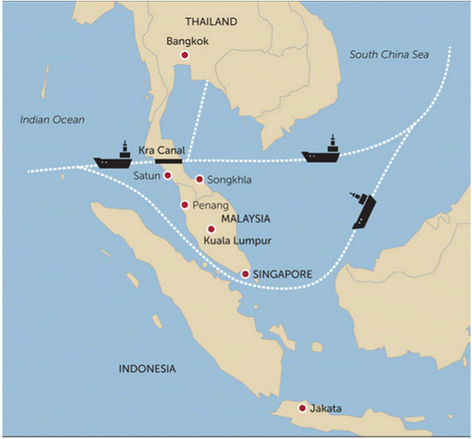By Hong Wai Onn
It does not take a long to notice the unpopularity of the chemical engineering and palm oil industry, ask around. In reality, Malaysia is currently the second largest producer and exporter of palm oil worldwide, after Indonesia.
From its humble beginnings, palm oil has evolved to be among Malaysia’s most important commodities, and has remained as one of the top ten largest export earners for Malaysia in the past decade.
The advancement of the palm oil industry is a testament to the nation’s achievement in terms of its contribution to the gross domestic product (GDP), employment opportunities, poverty eradication, and narrowing the income divide between urban and rural communities.
Much of what made a good chemical engineer, including changing raw materials into useful products, easily transferred into a job that would bring success in a rapidly growing, globally important industry.
If the palm oil processing is such a good industry, you may wonder why so many people are turning away from this industry.
Well, let me offer some thoughts.
Unawareness of Today’s Youth
When thinking about career options, very little of today’s youth is choosing to pursue the palm oil processing industry. This could be because they do not understand this industry and have no clue as to how they can contribute to it.
In the period of the 1960s, especially with the establishment of FELDA, many mechanical engineers were employed to work in the milling sector. To this day, the palm oil milling sector is still heavily populated by them. Why not chemical engineers?
Till the late 1990s, there were only seven universities in Malaysia offered chemical engineering undergraduate programme. Even then, many chemical engineering graduates preferred to work in the oil and gas industry as there was lack of understanding on the role and contribution of chemical engineers in the palm oil milling sector.
We then witnessed chemical engineers started to work in the refining and oleochemical sectors as career opportunities arose with the boost of these sectors in the 1970s and 1980s. The number is still relatively small compared to petrochemicals sector, though.
Maybe the industry has not reached out to make the palm oil processing highly relevant to chemical engineers, or maybe, dare I say, these careers are not attractive enough for today’s youth since this industry is perceived by them as remote, dangerous, and difficult.
Whatever it is, this needs a paradigm shift if the talent shortage we all face is to be solved.
Unawareness Needs to End
We could argue all day about the industry is not doing enough to attract today’s youth, but have you ever asked undergraduates what they sense from their universities?
While there are engineering degrees offered to address specific industries’ needs, they hardly see degrees focused on palm oil processing.
The underlying message is then echoed at home, because while parents may agree that the palm oil processing offer a good career path, they will quickly qualify that statement with, “well, but not for my kid.”
As a result, today’s youth fall back on what they know. They are making career decisions based on unawareness of what the palm oil processing industry offers.
They are taking the paths most available and recognisable to them. I think it is in everyone’s best interest—parents, educators and industry players—that the palm oil processing industry becomes a viable option for as many young people as possible.
There are some professional institutions dedicated to making the palm oil processing industry more accessible for young people.
The Institution of Chemical Engineers (IChemE) Palm Oil Processing Special Interest Group’s University Roadshow 2019-2020 has sessions that will present the truth about palm oil to undergraduates and talk about the career prospects in this industry.
There will also be a field trip to one sector of the industry after the half-day event (not in the time of pandemic).
This Malaysian Palm Oil Council supported event is a straightforward way to introduce the industry to young people.
In “A Chemical Engineer in the Palm Oil Milling Industry”, a fascinating array of facts and statistics about the palm oil milling industry are discussed. The book also uncovers the opportunities chemical engineers have in this industry.
It is believed that this is the first memoir that has come out with stories from the palm oil mills. Imagine the impact such a simple reading could have on the career path of a young person.
Chemical Engineers have a Significant Role to Play
Much of the work undertaken by a chemical engineer is applied based on cross-cutting technical knowledge and competencies, such as process technologies, thermodynamics, heat transfer, mass transfer, and the like.
The need for process safety and sustainability underpin all of this across the palm oil processing industry, alongside operating with the highest ethical standards and acting in public interest at all times.
Chemical engineers in the palm oil processing industry, like in other industries, rely on the knowledge of mathematics and science, particularly chemistry and physics, to maximise process efficiency as well as overcome technical problems safely and economically.
Nonetheless, working with process operation is not the only career option the industry can offer. Chemical engineers also have a significant role to play in plant design.
Chemical engineers can apply technical knowledge to not only perform basic engineering to figure out technical issues and estimate rough investment costs, but also to oversee the building of a project from procurement and construction to commissioning.
For those chemical engineers like research and development, the palm oil processing industry always needs fresh minds to invent and develop new technologies to further enhance the competitiveness and resilience of the industry on a global scale.
Chemical engineers can also work as quality assurance or process improvement professionals. This not only helps plants avoids legal problems like selling finished products that do not meet the standards, but also helps to identify gaps and future opportunities to improve operations and make them more sustainable and safer.
For those chemical engineers like working with people, a number of engineering companies and suppliers of products and solutions employ technical professionals.
They will become a trusted advisor to their customers. They will provide not only technical support but also onsite training to users.
So, chemical engineers have a wide range of career options in the palm oil milling industry. It is unfortunate that today’s youth are unaware of the opportunities that the industry can offer.
It does not have to remain that way. Start taking advantage of the many available resources to spark a newfound interest in the palm oil processing industry within your community today. – Oct 1, 2020










